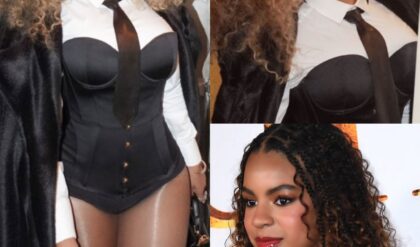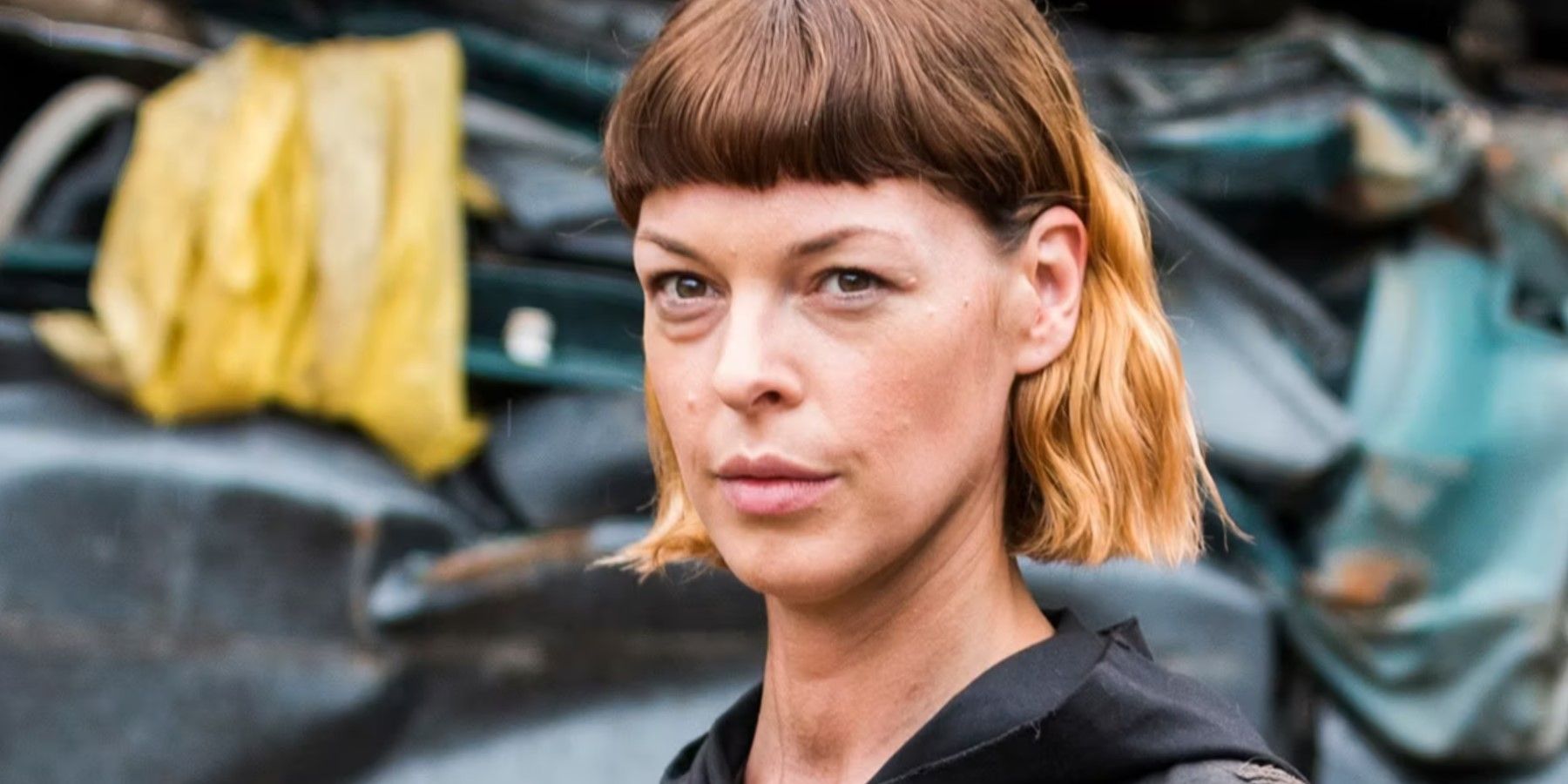
Many beloved characters from The Walking Dead franchise, including long-absent protagonist Rick Grimes, return in the upcoming spin-off The Ones Who Live. One of these characters is Jadis Stokes, an officer of the CRM who has been both an ally and foe to Rick throughout the series. Game Rant recently talked with actress Pollyanna McIntosh, who portrays Jadis, about bringing the character to life and stepping back into the role for The Ones Who Live.
McIntosh also discussed Double Blind, an upcoming horror film about a group of people trapped in a facility after a drug trial goes wrong. Forced to stay awake or else succumb to the drug’s fatal side effects, the group tries everything they can think of to escape or simply make it through the night. McIntosh appears in the film as Dr. Burke, one of the organizers of the drug trial who desperately tries to keep things sane and organized as the chaos and danger mount around her. This transcript has been edited for clarity and brevity.
McIntosh Plays Dr. Burke in Double Blind
Q: I really enjoyed Double Blind. My favorite part was how compelling the cast of characters was. Everyone was memorable.
A: I think that’s one of the things I really loved about the script. You could see the complexity and the characters, and they were genuinely all different. It wasn’t just like: “Oh, someone’s in a wheelchair, this makes them different.” I’m not saying you shouldn’t put somebody in a wheelchair, but you shouldn’t just do it to tick off a box. In Double Blind, these are all different people, and anyone could have played each of them. It really works for me.
Q: What was the filming experience like for Double Blind?
A: As an actor, it’s interesting because I’m not in it as much as the other leads were, but character-wise, it was really clean and simple for me. It was fun to spend extra time with the other actors other than the time we were shooting together because we all shot in Limerick, Ireland, and all stayed in the same hotel. I was coming and going because I was shooting this movie called Apocalypse Clown at the same time, so I’m shooting that comedy on the outskirts of Dublin and Double Blind in Limerick at the same time. I was also recording Scavenger’s Reign in Dublin, which is an animated series on Amazon Prime. I had a lot going on at once, but I had a great time because I got to know this lovely ensemble cast.
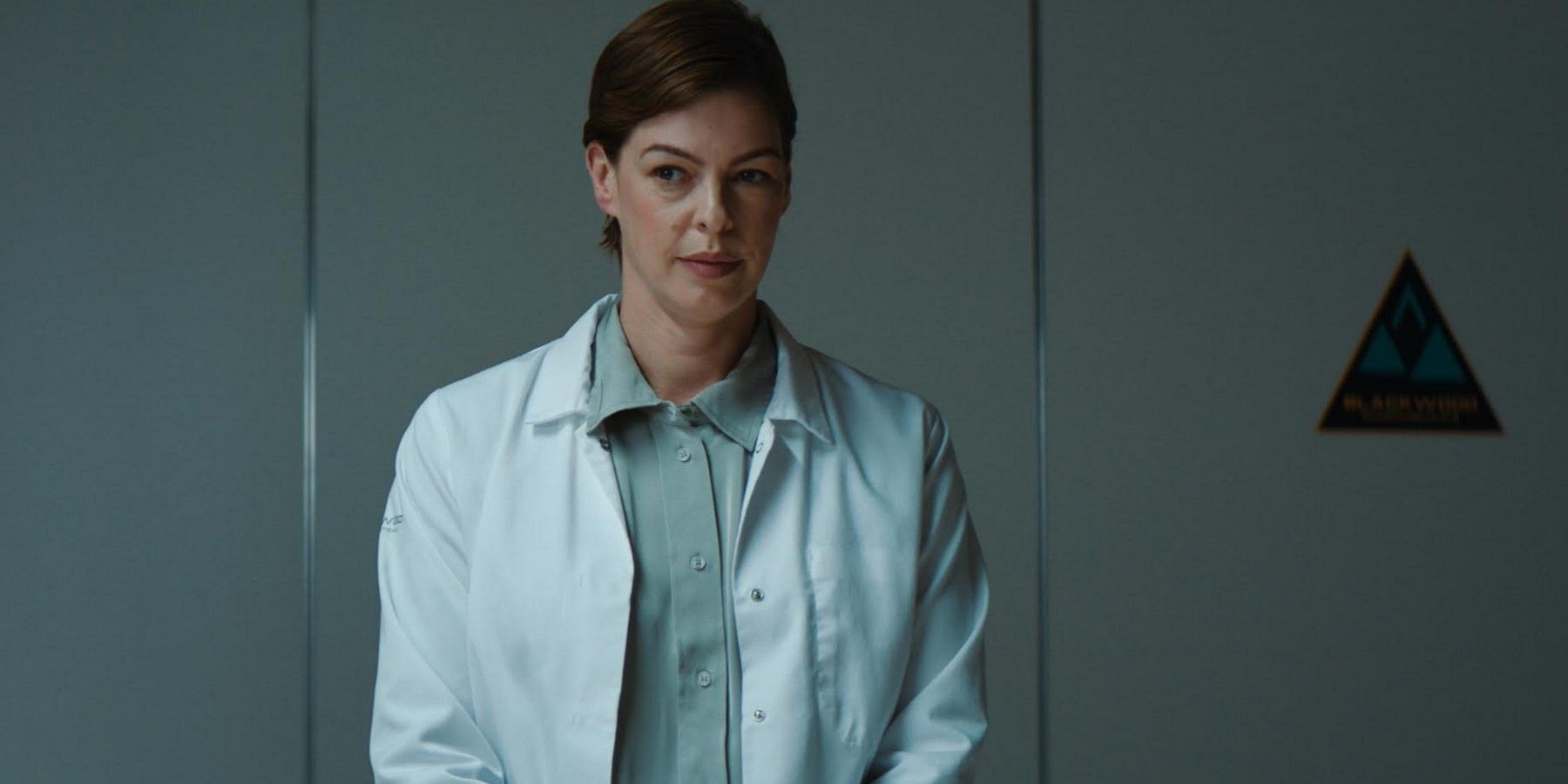
Q: Your character, Dr. Burke, is the sole doctor – the sole authority figure, in many ways – in the film. What was it like portraying that character?
A: The thing about Dr. Burke is that she knows some of these guys from previous drug trials, and she certainly feels she knows the type of people they are. She’s quite presumptuous in that way. Quite arrogant. I don’t like to judge characters, but we all have a little bit of that in us. You just key into that, you know? She starts as the authority figure, but then you see her on the phone with even higher-ups, and you realize she’s just as double-blind as they are.
Q: The entirety of Double Blind is set in a single facility. What was the experience like of filming something so contained?
A: Well, I was impressed when I read the script. Sometimes you see a single location script, and you think this isn’t going to be enough to keep people interested. But there was so much movement in it, and so much suspense and, again, so much character. You’ve got to discover the facility bit by bit, and it made it feel even more claustrophobic because there’s no way out. Luckily, the experience of shooting was quite different from that! Certainly for me—and definitely for the guys who had to be feeling like they couldn’t sleep or they would die. That’s a lot more weight for an actor to carry throughout the filming process. I didn’t have that weight, so I felt lucky in that regard.
I was quite conscious of how the actors might be coping with that stuff, but they were good and buoyant with each other. That was really important, so the experience of shooting in that contained space wasn’t claustrophobic at all. We also had a great big room that was make-up, the production office, and where we had lunch. There was a door out to the back, and you could go out and stand or sit in the sun.
Q: The claustrophobia really comes across in the film. It works so well.
A: It’s the great writing, Ian Hunt-Duffy’s direction, Narayan Van Maele’s cinematography, and Steve Kingston’s production design. They really assembled an extraordinarily talented group of people. It speaks well to Ian and to the writer, Darach McGarrigle. Every time I looked at a monitor I was like, “Wow, what a shot.” It’s really great filmmaking, but it’s not so self-conscious. There’s a really great scene later on with Millie Brady’s character – I can’t wait for people to see it. I had a good time making that film and knowing that it was going to be something exciting for people to see.
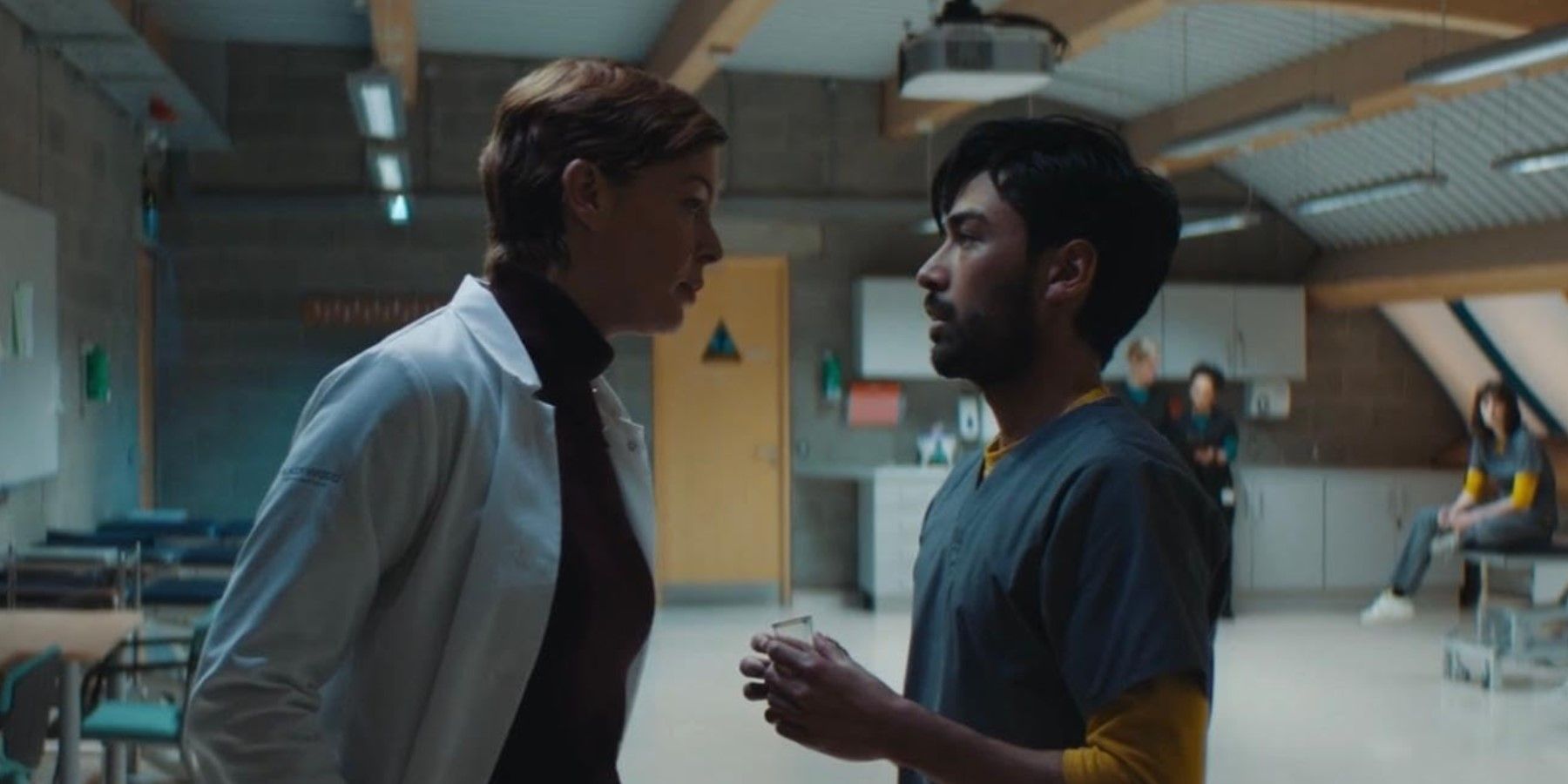
Q: What were some of your favorite things about working on the film?
A: It had really fun effects. I love gore stuff because, when it’s done well, it’s so effective. The dreamscape nature of some of the elements of the film was really appealing because that’s what life feels like to me. We all have dreams, don’t we? We sort of cross over into dreams. It’s perfect for a movie that’s all about sleep, or rather the lack of it – the fear of it. I think it brings another level and layer to the movie. It’s almost like a Freddy Krueger situation.
Q: You’ve done so much great work in the horror genre – the Woman films, Tales of Halloween, and now Double Blind. What draws you to the horror genre?
A: I think it’s the fact that, when you’ve got life and death at play so viscerally, the stakes are very high. I think there’s an honesty about the exposure of our vulnerability through body horror or gore. It goes in many directions. It’s a lot like nude painting in the days of old. It was a huge field in painting because it shows true human vulnerability in our most animal and simple form – our most exposed. I think you get a lot of that with good horror. I think it’s a pinprick in the hypocrisy of the idea – the bullshit of the idea – that we’re separate from nature, that we’re not animals. There’s something comforting for me about playing in that realm.
I think that’s a truth that we sadly ignore, to our detriment, more and more as culture and society move the way it’s moving. There’s a backlash, of course – more Eastern philosophy and more “back-to-nature” stuff. The pandemic made a big difference there, but there’s just something honest about good horror to me. The stakes are high, so it makes for great drama, and it’s often about an outsider – often focused more on the underdog. I think that’s healthy to relate to that. I think that all of us, at some point, feel like outsiders, and horror often holds that outsider up. They’re generally the one who knows what’s actually going on, so it’s cathartic in many ways.
McIntosh on the Return of Jadis
Q: That conflict between man and nature, man and animal, shows up a lot in The Walking Dead. Is that something that your character, Jadis, struggles with?
A: It’s interesting that Jadis was constantly making wire sculptures of animals, or art about the sea or flowers, that you could see in the junkyard. I think that she’s a very grounded, very earthy person in many ways. I think that she gets broken at some point, once she loses all her people. I think that she feels a great sense of responsibility for their loss, that she let them down, but she also sees the cruelty of humanity. Sometimes you see someone in real life like the character of Simon, or you hear about something inordinately cruel that has been done. It gets right into my guts.
The feeling: am I even part of this species? I think for Jadis, she took that, and it made her change her whole outlook. At first, she needed and wanted community – wanted to just be looked after a bit more, when she went to Alexandria. You see her moving beyond that, though, in The Ones Who Live. That experience has also corrupted her. She still believes she’s doing the right thing – but it has corrupted her from her original vision. She’s moved away from her animal nature by the time we see her in this iteration.
Q: We saw Jadis join up with the CRM Civic Republic Military in World Beyond. Is she still with them in The Ones Who Live?
MCINTOSH: Yes, she is. She’s very much Warrant Officer Jadis Stokes. I don’t want to give away too much, but she’s very high up in the CRM. She’s got that Joan of Arc haircut that I designed myself.
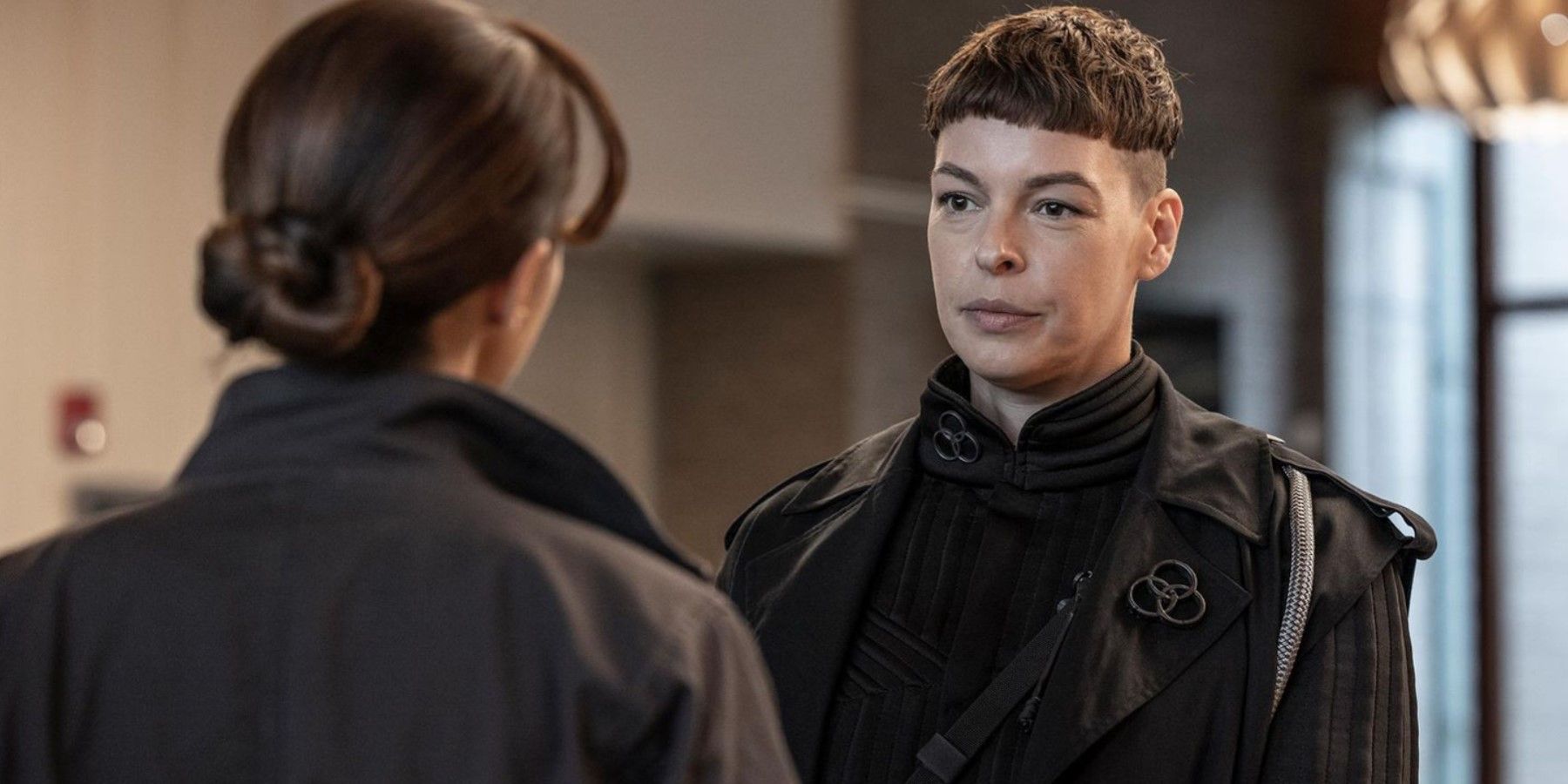
Q: I love how Jadis’s hair is constantly changing. It reflects what she’s gone through. Did you come up with each of those hairstyles yourself?
MCINTOSH: Yes and no. The first time I realized I could do drastic things with my hair was when I was working on The Woman. I was supposed to wear a wig. But there was so much action going on, and the wig looked ridiculous. I thought, if we lose a take of a fight scene because of this wig going wonky, we’re never going to get this film finished! I’m reading the book, and it mentions that she has “strange hair” and it’s important. I had longer hair at the time, not even bangs, just a long front. So I thought, well, they can’t resist if I do this. I went into the hair department and pulled my hair up and chopped it away right at the front of the head. I shaved part of it, I clipped in a piece of gray hair, and I put a feather in it. Once an actor, especially a female one, has chopped off her hair, nobody is going to make her wear a wig!
When I first auditioned for The Walking Dead, I was about a week coming off a film called Revenge Ride, where I played the head of an all-female biker gang. I had bangs and long dark hair at the time, and the other female lead in the movie had a similar hairdo. I thought, there’s nothing more annoying than trying to get into a movie when everyone looked the same because you just wanted to differentiate. I went to the talented hairdresser who was working on the movie, to her salon in Hamilton, Ohio, and we worked together and came up with this hairdo. We went with half-blonde and edgy bangs. My character was gay, and I didn’t want to do the “traditional lesbian” and give her short hair, so we left some long and cut some short.
On the first day of shooting, we were introduced to this biker gang, and I didn’t feel like I had enough movement to do to make the conversation be cool. So I said: “What if I just take these scissors and just start cutting my own hair in the bike mirror, while we’re talking, and that will show that I don’t give a shit.” It showed that I’m confident, I’m in charge, and it made the conversation a bit more fun. It’s the pope in the pool!
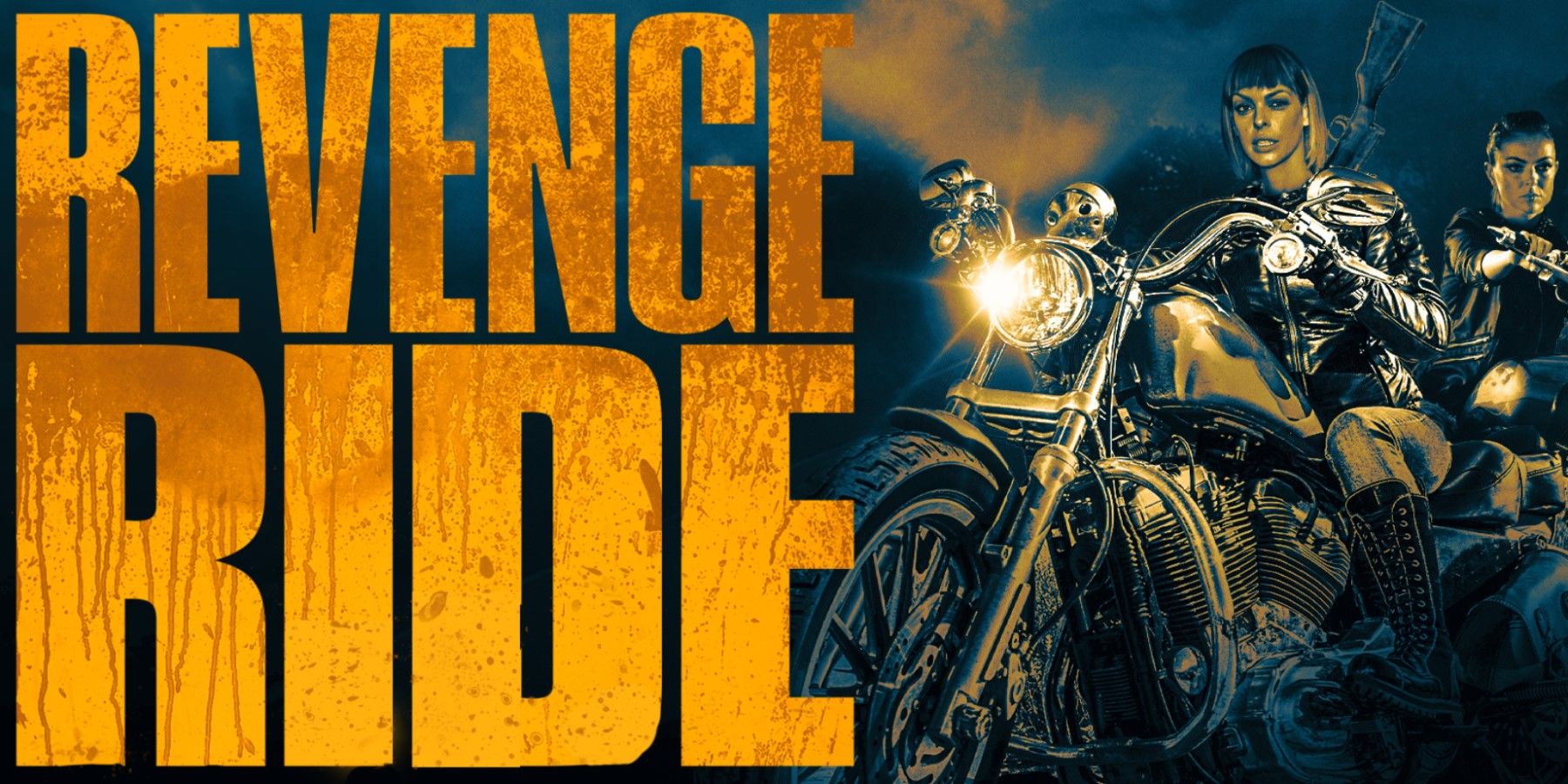
A week after we’d finished that movie, I got this audition for The Walking Dead. And I thought, “I don’t have time to fix my hair, but at least they’ll remember me. They won’t use this hair, of course, but they’ll remember me.” Well, not only did I get hired, but they said, let’s keep your hair. So that’s how that happened.
It was a bit of a shock to me when they wanted it to get all normal, natural, curly, and as long as Anne in Alexandria. I kind of missed it. I didn’t have anything to do with it becoming longer, but then when I moved on to World Beyond, I talked to Scott Gimple, head of Universal, who was overseeing that show and wrote a fair amount of it. I said: “Hey, I know you’re really particular about hair stuff, but I had this idea. What if I kept it short?” I had shaved it all during the pandemic, for the first time, and it was growing out. But I said, why don’t we shave it again? Then, she has short bangs again because I wanted to have a nod to the original Jadis, and I thought the shaved piece would be quite military.
It’s still got that sort of “What the fuck is on that woman’s head” feel about it, which is what Jadis wants. She wants everyone to feel that way about her. She wants to put people on the back foot and make them uncomfortable. I thought it would echo Joan of Arc a little bit because Joan of Arc believes so strongly when everyone else doesn’t. I think Jadis believes that she’s doing the right thing. That the CRM is “the last light in the world” and that they can bring the world back.
Q: A lot of fans have been waiting to see Jadis and Rick Grimes interact again after that scene in Season 9 when she took him away on the helicopter. Does that happen in The Ones Who Live?
MCINTOSH: Yes, I got to play with Andy Lincoln again. It was wonderful. All I can say is: it’s going to be interesting.
Q: I can’t wait to see everyone interacting again.
MCINTOSH: Me too! For me, discovering and watching the show, I loved Carol because of her art, but my favorite character was a close tie between Carol and Michonne. Michonne is my favorite fighting character. I think Danai Gurira is so magnificent, you know, and so entirely herself. Andy too. They’re both so entirely themselves. I love working with them, but as an audience member, I’m excited to see Michonne back as well.
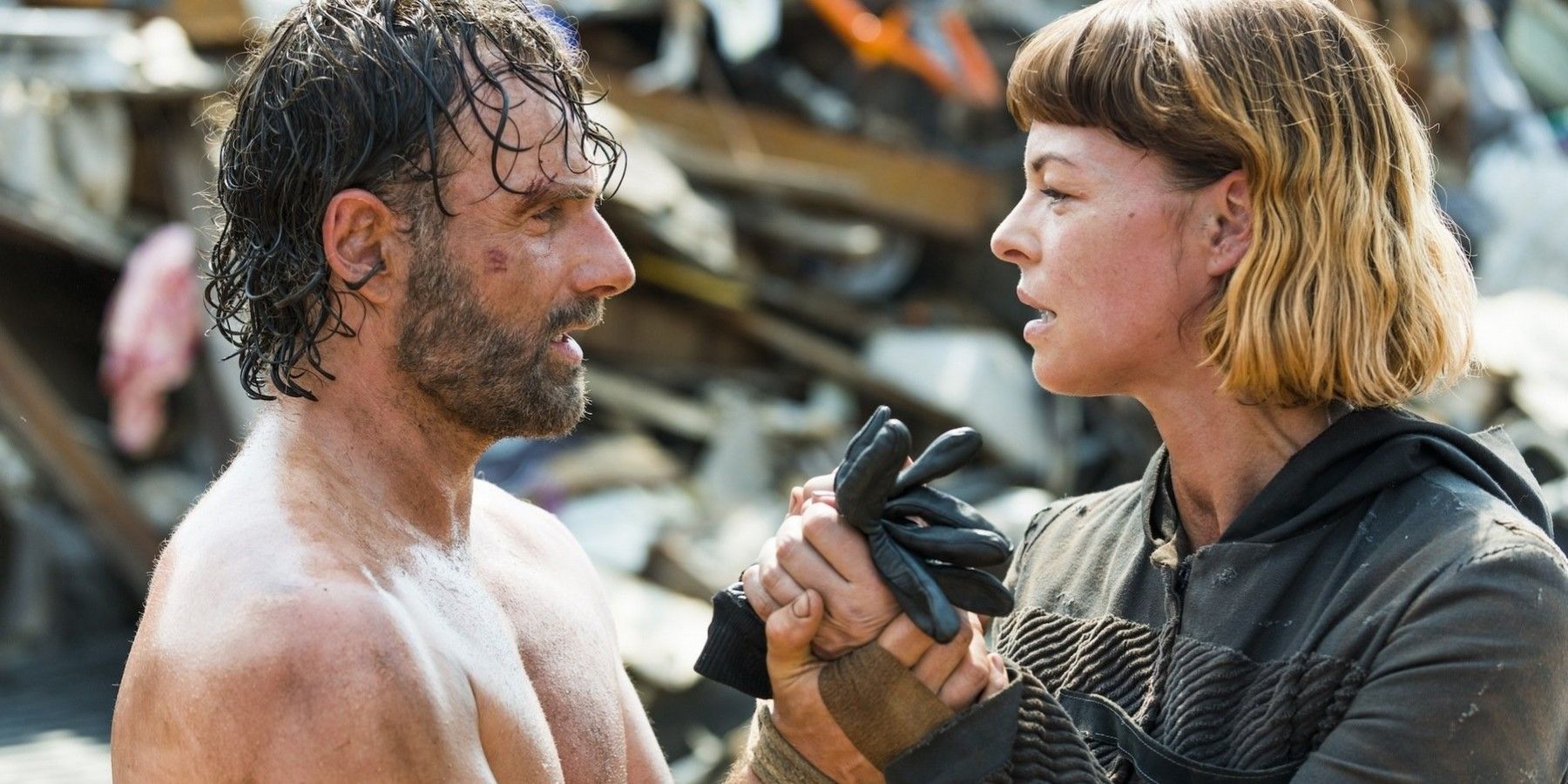
Q: There was that memorable interaction between Jadis and Michonne, where she says she wants to lay with Rick. Do you think Michonne remembers that?
MCINTOSH: I don’t think that’s the kind of thing you can forget! Her face at that moment was just priceless. And Rick’s too.
Q: Did Andrew and Danai know you were going to say that?
MCINTOSH: They did, but still looked so scared. It’s not often that Rick Grimes is lost for words, you know? He just played it so well. I thought this was going to come off like a Carry On movie because it’s so funny. It worked so great. I think you need levity in these worlds, and that was a really beautiful example of it.
Q: I don’t think I’ve ever seen Rick look so thrown off. He’s always so in control – but not then.
MCINTOSH: Yup. Attacked by a whole horde of walkers? Yeah, that’s fine. The dump lady says “Yeah, I’ll be getting to you later?” That throws him off.
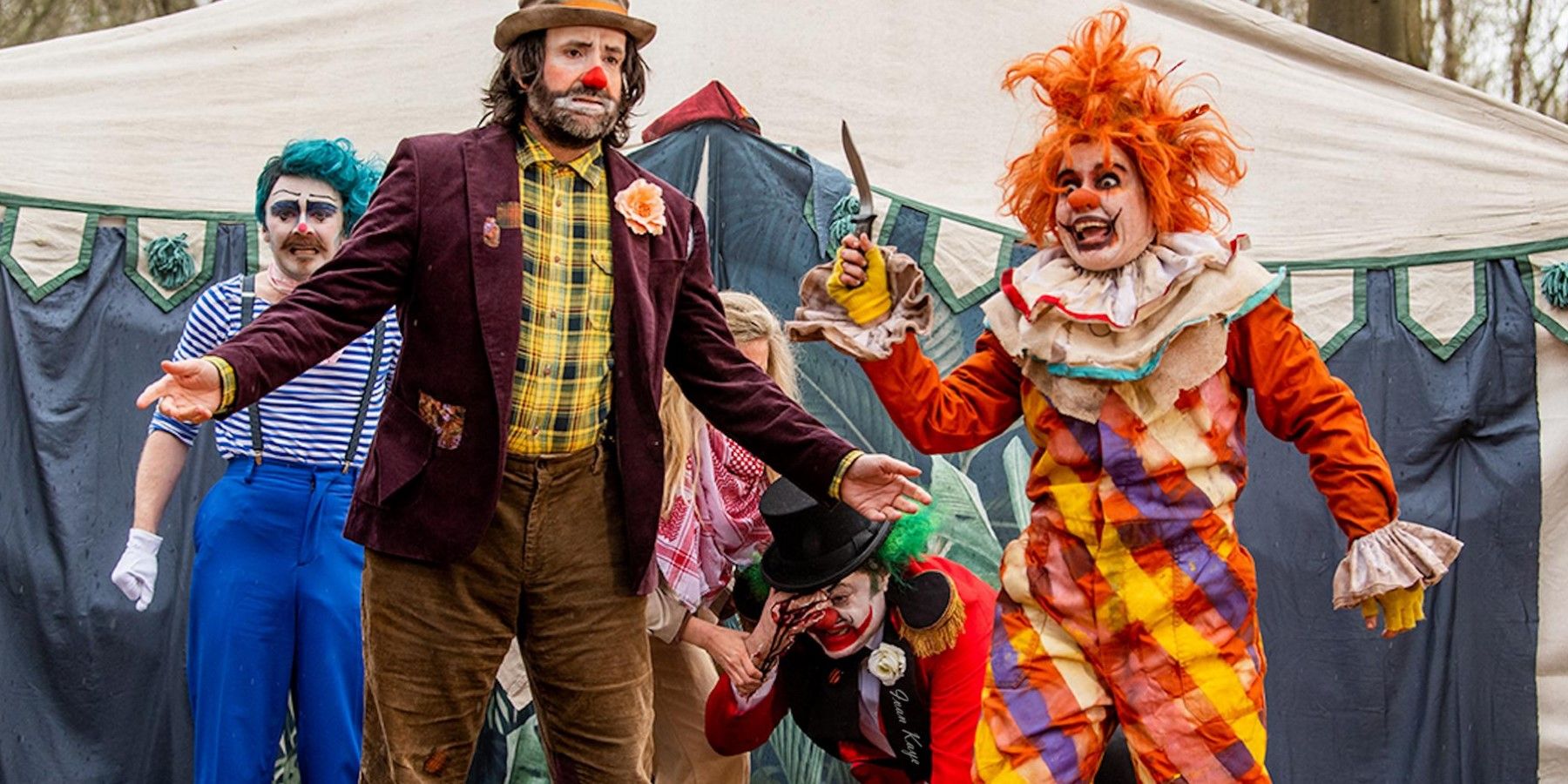
Q: You’ve done a lot of video game work – could we ever see Jadis in a video game someday?
MCINTOSH: Maybe! I love doing video game work. I’ve done quite a bit, games like Forspoken and Middle-earth: Shadow of War – I’m Shelob. I also did Dante’s Inferno; I played Dante’s mother. Also, Scavenger’s Reign, which I think is on Max now, has a lot of video game-like elements in it. I think gamers would really enjoy that show.
Q: Anything else you’d like to add? What upcoming projects can we see you in?
MCINTOSH: The third season of Vikings: Valhalla will be coming out on Netflix this year. I play Queen Ælfgifu. Apocalypse Clown, the comedy film I mentioned, should be coming to the States later this year, on Netflix and maybe in cinemas. It’s brilliant, it’s so funny – definitely watch it! I’m directing a feature this year called Bride Squad, which is a female road trip comedy. It’s based on a book written by two Irish women, and I’m excited about getting into that. We’ve got Mary Elizabeth Ellis attached to it. She’s brilliant in It’s Always Sunny in Philadelphia and so many other things, so I’m excited to get to direct her. Definitely check all of these out!





